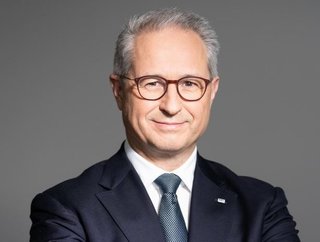How is OMV Progressing Towards Net Zero Targets?

Multinational oil, gas and petrochemical company OMV is reinforcing its commitment to sustainability and circularity as ‘key pillars’ of its strategy to 2030.
The Vienna-based business has published its 2023 sustainability report, which outlines its progress towards its planned transition to, according to the report, ‘becoming a leading sustainable fuels, chemicals and materials company with a focus on circular economy solutions’.
The report provides an update on OMV’s strategic targets for material topics that fall into five focus areas: Climate change, natural resources management, health, safety and security, people, and ethical business practices.
They are tied to the UN 2030 Agenda for Sustainable Development and underpin the OMV Strategy 2030.
Sustainability and circularity are key
The report reveals that OMV has reduced its absolute Scope 1 and 2 emissions by 25% and the carbon intensity of its operations by 20% compared with the base year 2019.
Scope 3 emissions have been cut by 10% vs. 2019 and OMV has achieved a waste recovery or recycling rate of 74%.
Alfred Stern, OMV CEO and Chairman of the Executive Board, said: “Our sustainability journey has shown consistent progress in recent years, and this report underscores our commitment to comprehensive and transparent reporting practices.
“Furthermore, it signifies the importance of sustainability and circularity as key pillars of our Strategy 2030.”
OMV operates across three integrated business segments of Energy, Fuels and Feedstock, and Chemicals and Materials.
Powerful partnerships
In his foreword to the report, Alfred outlined a series of key strategic alliances and partnerships.
He said: “In 2023, we partnered with Interzero to build one of Europe’s largest waste sorting plants. It will provide circular and sustainable feedstock for chemical recycling using our patented ReOil® technology.
“The feedstock produced will then be transformed into a high-quality raw material that is certified according to the International Sustainability & Carbon Certification, or ISCC.
“Customers who utilise this raw material as feedstock for sustainable plastic production will gain improved insights into the carbon footprint of the products they make.”
Solar park success
He added that, to “actively reduce direct emissions at ongoing operations in Austria and Romania”, OMV has started to use renewable energy generated by its own solar parks.
Alfred said: “For instance, the PV plants located at the Lobau tank farm and Schönkirchen together generated more than 20GWh of renewable energy in 2023, which was used for our ongoing operations.
“To reduce our Scope 2 emissions, we signed several power purchase agreements (PPAs) to secure renewable energy supply for many years to come.
“As an example, the clean wind energy acquired through the PPA with WEB Windenergie AG will be used to produce green hydrogen at the Schwechat refinery.”
From next year, OMV will have an annual report combining the financial and sustainability statements to meet the requirements of the Corporate Sustainability Reporting Directive (CSRD).
******
Make sure you check out the latest edition of Sustainability Magazine and also sign up to our global conference series - Sustainability LIVE 2024
******
Sustainability Magazine is a BizClik brand
******






